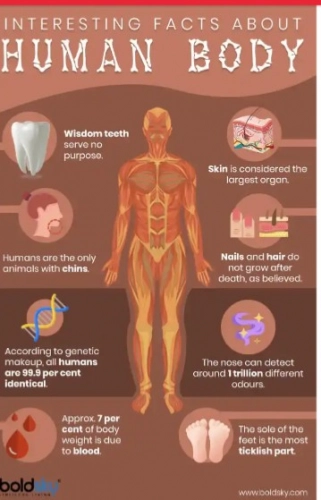News And PoliticsCommunications And EntertainmentSports And FitnessHealth And LifestyleOthersGeneralWorldnewsBusiness And MoneyNigerianewsRelationship And MarriageStories And PoemsArts And EducationScience And TechnologyCelebrityEntertainmentMotivationalsReligion And PrinciplesNewsFood And KitchenHealthPersonal Care And BeautySportsBusinessFamily And HolidaysStoriesIT And Computer ScienceRelationshipsLawLifestyleComedyReligionLifetipsEducationMotivationAgriculturePoliticsAnnouncementUSMLE And MedicalsMoneyEngineeringPoemsSocial SciencesHistoryFoodGive AidBeautyMarriageQuestions And AnswersHobbies And HandiworksVehicles And MobilityTechnologyFamilyPrinciplesNatureQuotesFashionAdvertisementChildrenKitchenGive HelpArtsWomenSpiritualityQuestions AnsweredAnimalsHerbal MedicineSciencePersonal CareFitnessTravelSecurityOpinionMedicineHome RemedyMenReviewsHobbiesGiveawayHolidaysUsmleVehiclesHandiworksHalloweenQ&A
Social Sciences
profile/2322Screenshot_20211203-0009152.png
Gistloverz

10 Interesting Facts About The Human Anatomy
~0.7 mins read
There are things that happen in our body that we are not aware of while go about our daily lives. Here are ten interesting facts about the human anatomy.
1. The human body secrets 1.7 litres of saliva everyday.
2. Each 1ml of sperm can contain 40-120 million sperm.
3. The human heart carries approximately 10 tons of blood everyday.
4. The human skeleton consists of 206 bones.
5. Taste and smell are closely related. So when we have a runny nose, we not only smell but also taste the food.
6. The human appendix belongs to the immune system.
7. There are 600 human muscles in the body.
8. The speed of a nerve impulse is 120m per second.
9. The length of the spinal cord is about 40-42 cm.
10. During a woman's lifetime, about 400 follicles grow in her ovaries.
profile/72272224326_2720808307971078_1570351171401416704_n.jpg
Ecoin

Top 10 Ugliest Animals
~4.9 mins read
Sometimes the most beneficial anatomical adaptations can leave an animal lacking in the looks department. Case in point: the star-nosed mole. Each fleshy ray in this animal's snout contains thousands of sensory organs that allow it to navigate and sense prey as it moves through the water or over land. As the star-nose wriggles and flexes, the mole learns everything it needs to know about its environment, including how to get back home. The star-nosed mole spends much of its time in water, but it also ventures above ground regularly to forage and often retreats to a network of subterranean tunnels.
The matamata turtle, whose name means "Kill! Kill!" in Spanish, is definitely a killer to behold. This unfortunate beast has a long neck lined with warts and fleshy folds, a large flat head, and a protruding snorkel-shaped nose that it uses to breathe while underwater. However, these features also make the animal a formidable predator. Its knobby carapace and bulky head and neck may look like a pile of rocks, but they confer near-perfect camouflage in the shallow muddy waters of northern South America, where this animal makes its home. There, it lies in wait for passing prey with only the tip of its snout extended above the water. As soon as a fish comes close enough, the matamata turtle will suck it in and snap its mouth shut, swallowing the fish whole.
The vampire bat is one of the ugliest and most feared animals in the Western Hemisphere. This repulsive-looking creature has huge ears and a wrinkled-up nose that sits atop large fang-like teeth. And if its looks weren't bad enough, this animal also has the nasty penchant for mammal blood. At night these bats emerge from their caves to search for unsuspecting cows, horses, birds, pigs or even humans. Then, often without waking their victim, the bat uses its sharp teeth to shave away pieces of flesh and then lap up the oozing blood with their tongues. On the plus side, these "attacks" often go unnoticed and rarely hurt the victim.
What can we say about this animal other than "that's a whole lot of nose!" This unusual-looking primate is called the proboscis monkey for the pendulous nose of the male. It is believed that the long nose is used in mating, possibly to produce loud resonating vocalizations that attract females. Interestingly, proboscis monkeys are born with a blue face and a small nose. The color of the face changes and the nose enlarges with age. Females also have a large nose, though not nearly as large as the male's.
If warts ever come into fashion, this animal is going to be all the rage. The warthog is a type of pig whose large, flat head and toughened snout appear to be generously covered in warts. However, these are not actually warts at all. Rather, they are thick, fleshy pads that protect the animal when it is engaged in combat. When warthog males clash, they collide head-to-head in an attempt to knock each other off balance. Their pointy tusks may seriously damage the facial structures of the animal if it weren't for those wart-like pads.
The Mexican burrowing frog is a stout, beady-eyed, splotchy, pointy-nosed frog that lives in the low-lying regions of the southern United States, Mexico and Central America. Adding to the hideousness of this animal's face and bloated body are its horny, shovel-like feet, which it uses for digging. The one saving grace for the Mexican burrowing frog is that it lives underground — hidden away from the harsh judgment of top 10 writers — and only emerges after heavy rains.
Also known as the monkfish, this animal is covered in warty brown skin that allows it to enjoy near-perfect camouflage as one of the most successful bottom-dwelling predators in the eastern North Atlantic. It also makes it one of the ugliest. Anglers have an odd-looking fleshy lure protruding from the dorsal spine that dangles in front of the animal's humongous head. This is yet another example of sacrificing looks for a skill — this awkward appendage is used to entice prey. As unsuspecting fish come by to investigate the lure, the well-disguised angler opens its jaws and sucks them in.
The fruit fly is one of the most ubiquitous animals on the planet, inhabiting every continent except for Antarctica, though it will probably show up there soon too. In larger form, these animals would be the nightmare of small children and most adults. Their bulging blood-red compound eyes and mouthparts that appear to be capable of human decapitation with a single bite are the stuff of horror films, especially when you combine these features with superior flying abilities. Let's just be grateful that this menacing and monstrous animal is not capable of gigantism.
Vultures are associated a lot of bad qualities, including greed, ruthlessness and treachery. But perhaps the worst thing about vultures is their face, which only a mother could love. It isn't a bad-looking bird if you only focus on the body, which is big and strong with a pair of nice broad wings. But one look at those piercing eyes, bald head and wrinkly neck is enough to make you cringe. However, as with many of the looks-challenged species in our countdown, these hideous features actually serve a purpose. As a carrion-feeder, vultures are able to stay cleaner without head and neck feathers to absorb the rotting material of their hapless victims.
The blob fish is one of those animals that illicit the response, "that can't be real!" Coming in at No. 1 on our countdown of ugly animals is the very real blob fish, a deep-water, bottom-dwelling species endemic to the waters of the South Pacific. It is made of a gelatinous material less dense than water, which allows it to float about in the water despite reaching such a large and ungainly size. This animal is rarely encountered by humans and therefore not much is known about its natural history. Although, judging from its appearance, it seems likely that the blob fish spends most of its time just sitting around waiting for a meal to swim by.
profile/2978IMG_20201011_084607.jpg
Classiqboy

Adeyemi Oluwatosin Dotun: The Role Of Social Media In 2023 Elections
~9.4 mins read

Advertisement
Loading...
 Gistloverz
Gistloverz
 Ecoin
Ecoin
 Classiqboy
Classiqboy